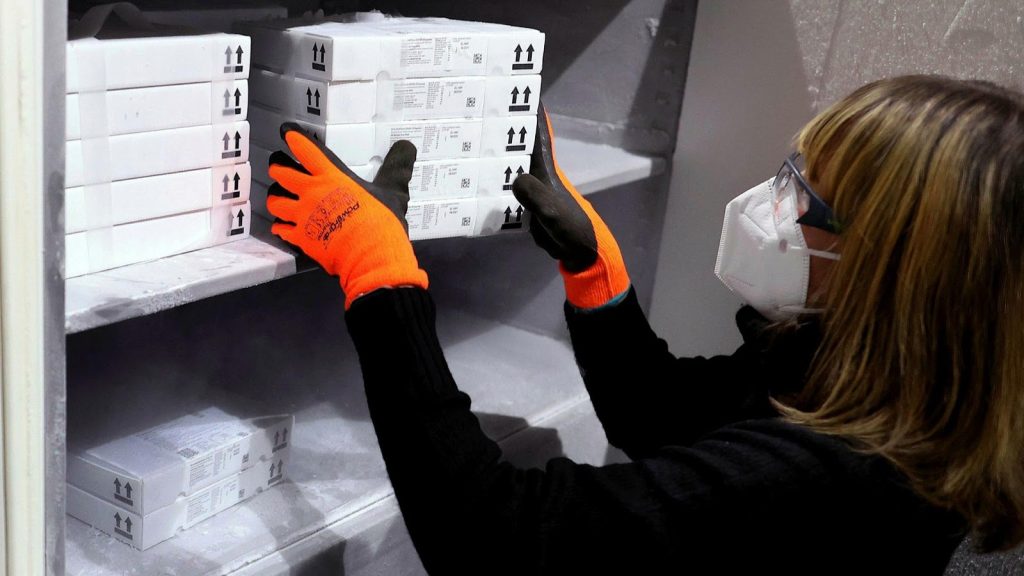Healthcare facility owners should brush up their knowledge about the proper handling of vaccines, which is one of the most critical aspects of storing vaccines effectively.
If you fail to store vaccines properly, you will lose money in replacing the damaged vaccine stock, and at the same time, lose people’s trust in your facility.
The Centers for Disease Control and Prevention (CDC) says that storage and handling errors entail significant financial losses every year as that damage the vaccines, and many patients need to get re-vaccinated.
Therefore, healthcare facility owners should select suitable vaccine refrigerators and freezers and avoid improper vaccine storage.
You do not have control over the other parts of the cold supply chain, but you control the storage.
Let us walk through some of the risks associated with vaccine storage and how you can avoid the potential dangers.
Faulty Cold Supply Chain
Faults can develop in the cold supply chain at any point that can extend from the manufacturing facility to the administration phase.
Empower your staff to handle vaccines in the right ways. Train them how to properly receive vaccine shipments, inspect the shipments, and place the vaccines in cold storage.
Train them to unpack vaccines before placing them in the cold storage units as the cool packs may compound to vaccines’ cooling if the packings are retained inside the storage.
The Wrong Cold Storage
Avoid using the wrong cold storage unit for storing vaccines. You should not use the household or dormitory-style units for storing vaccines due to their inability to maintain a consistent temperature.
It might also happen that you get tempted to buy such a cold storage unit to save money. By doing so, you will compromise with your vaccine stock, which will get damaged.
It is advisable to invest in purpose-built or pharmaceutical-grade freezers equipped with fan-forced air circulation or multiple cool air vents.
Such units can maintain the requisite temperature and trigger fast temperature recovery after warm air entering into the unit when the doors are open.
Power Outages
If vaccines get exposed to warmer temperature environments, they can get damaged and become unfit for use.
If there is a power cut, the temperature inside the freezer will get warmer, damaging the stored vaccines. So, ensure that there is a power backup to keep the power uninterrupted.
Ensure that your freezer comes with an outlet, a safety lock or outlet cover to prevent any accidental unplugging of the power plug.
It is good to place warning signs at the outlet to prevent people from unplugging the unit. Do not label fuses and circuit breakers.
Many freezer units also come with an alarm system to send an alert signal in an alarm failure case.
Improper Air Circulation
If there is any hindrance to air circulation within the freezer unit, it will contribute to temperature instability, which is detrimental to vaccines.
While purchasing a freezer, make sure that it is large enough to hold your entire vaccine stock with space between vaccines for airflow.
Temperature Monitoring
Bear in mind that temperature monitoring is one of the best practices for storing vaccines. The temperature monitoring device of your freezer needs regular maintenance to operate correctly.
Do not fail to regularly inspect seals and door hinges and clean coils and other components of your unit. Moreover, clean the interior of the unit to prevent mould growth. And calibrate your temperature monitoring device occasionally.
Disposing of Wasted Vaccines
When vaccines in your facility get damaged, it poses a serious concern. You cannot use them as they become unfit for use.
At the same time, you cannot keep them in your facility to elicit a chaotic environment in your laboratory. It also brings the possibility of a patient receiving a damaged vaccine accidentally.
Moreover, expired vaccines take up space in your freezer. Ensure that your staff inspects the expiry dates of vaccines regularly. They should dispose of the expired vaccines.
The practice will enable patients to receive the highest quality vaccine.
Exposure to Freezing Temperatures
If you allow vaccines to be exposed to freezing temperatures, it can elicit a devastating result. The vaccines can get damaged. However, vaccines, such as the COVID19 vaccines, are an exception.
Freezing temperatures can reduce or finish a vaccine’s potency, which will become useless to protect against the disease it is meant to protect.
Typically, it would help if you stored vaccines at a consistent temperature between 36-46 degrees F. The CDC recommends using a digital data logger to alert you if the internal temperature goes out of the prescribed range.
Ensure that the digital data logger comes with a calibration certificate to testify that it can act as an accurate temperature monitoring device.
Failure to Prepare for Emergencies
If you fail to stay prepared for emergencies, you might see drastic results in due course. Like equipment failures, power failures, and natural disasters, unwanted occurrences are contributors to vaccine wastage.
As part of your emergency preparedness, you should not miss out on having a backup power supply to keep your freezer running to keep your vaccine stock at the prescribed temperature.
It is also advisable for you to have an alternative cold storage facility to host your vaccine stock while defrosting the freezer.
You also should have an external temperature monitoring system to monitor the internal temperature of the freezer.
Conclusion
Maintaining the potency of your vaccine stock is essential for medical facility owners. It helps to provide the right vaccines to patients. There are several measures for you to keep your vaccine stock in the right temperature environment to prevent damages.

